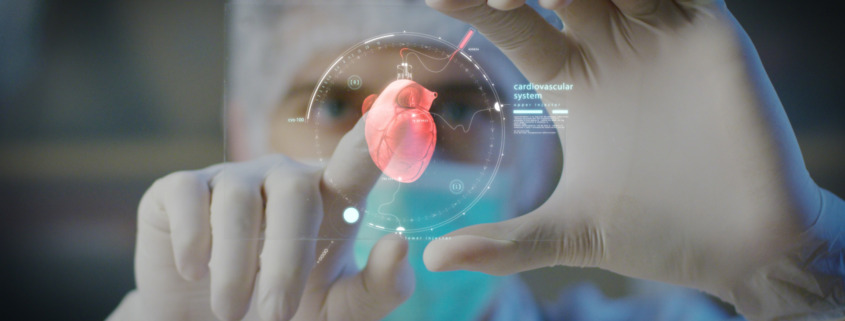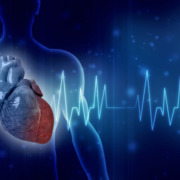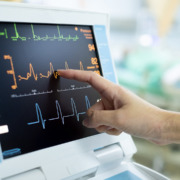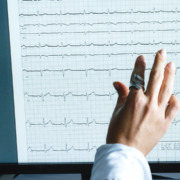Telecardiology: capabilities and features
Last Updated on 10 de September de 2024 by Redação

As a specialty derived from telemedicine, telecardiology uses the same principles of information exchange and online communication to facilitate the performance and evaluation of examinations, the issuance of medical reports and the closing of diagnoses. In this case, as its name suggests, it is focused on cardiology, aiming to address and identify heart diseases and other heart function abnormalities.
From monitoring the patient’s condition to the support of specialists for a more precise diagnosis, the entire process can be done remotely, via the internet, enabling patients to access healthcare and assisting medical professionals. Therefore, in this article, we are going to show the importance of this specialty and how doctors can perform in this new branch of cardiology.
What telecardiology can offer

Telemedicine in Cardiology, also known as Telecardiology, is one of the most benefited specialties by technological innovations that enable the exchange of information online in the healthcare field. The entire process is done in an appropriate and secure information and image management system.
Among the main advantages of cardiology through telemedicine compared to conventional methods, without the use of digital communication technologies, is the remote reporting of exams such as ECG, Holter and even ABPM (Ambulatory Blood Pressure Monitoring). Reports can be remotely prepared by cardiologists, who do not work directly in the clinic or hospital where the exam was performed. Through telemedicine, the exam results are sent via the internet to an online center, which then distributes them to its team of specialists – in some cases, the information goes directly from the integrated device to the telemedicine service, without the need of scanning or manual uploading.
On desktops or mobile devices (laptops, tablets or smartphones) connected to the internet, doctors access cardiological exams data and issue medical reports at any time and from anywhere in the country using the telemedicine platform. Some advanced systems even incorporate artificial intelligence (machine learning), where computers cross-reference stored data and images, assisting doctors identifying abnormalities and issuing more accurate reports.
These features allow the medical report to be available to clinics and hospitals on the same day, so they can quickly deliver it to patients, even within an hour in urgent cases. In Brazil, the city of Tarumã reduced the number of deaths from chronic non-communicable diseases¹, which includes acute myocardial infarction, by 45% in one year using Portal Telemedicine’s platform, which uses AI to detect changes in exams.
In addition to the issuance of reports, telecardiology offers other possibilities through telemedicine, such as remote patient monitoring (teleassistance), online medical interaction (teleconferencing) and online professional training (tele-education). Some countries already have teleconsultation with cardiologist.
Read more: Digital health: What is it and what are its benefits?
Remote Patient Monitoring

This is also widely used in ambulances and mobile ICUs, for example, because the data is already available in the electronic medical record while emergency care is performed. When the patient arrives at the hospital, cardiologists already have the information from the exams to proceed with treatment.
Online medical interaction
Teleconsultation can occur between doctors, when a general practitioner (from a rural area, for example) seeks assistance from a cardiologist at a reference healthcare facility. The exchange of knowledge can come as a second opinion on the diagnosis, a more suitable medication, or even live guidance on performing a procedure. As a team, they can decide and plan the most appropriate treatment for the patient.
Online professional training
The focus is on training healthcare professionals who are far from large healthcare centers, in order to update and prepare them for various situations in medical practice. To achieve this goal, tele-education focused on telemedicine uses videoconferences, classes, lectures, e-learning and recertification programs. It is a way of bringing knowledge to improve the execution of exams and enhance the quality of patient care.
Read more: Artificial Intelligence in healthcare: solutions, possibilities, trends
The role of doctors in telecardiology
Telemedicine and its specialties such as telecardiology have not come to replace but rather to complement medical care. It is undeniable that the Medicine of the future will require doctors to constantly update and master many of the new technologies applied to health. However, these innovations will also open up a range of possibilities for professionals seeking knowledge in this area.
Although many believe that technology works against the humanization of Medicine, this is one of the points where telemedicine can actually contribute. Doctors can move away from bureaucratic situations so they can assist the patients with much more empathy, being receptive with them, listening to their complaints and evaluating them comprehensively.
In addition, the focus of medicine is shifting from curative to preventive, enabling more accurate diagnoses and less invasive procedures. With technological advances in medicine, it will be increasingly possible to support doctors to carry out their primary role without obstacles: taking care of patients and saving lives.
Would you like to implement telecardiology in your clinic or hospital? Find out more about how and the advantages of Portal Telemedicine’s platform.

Article translated by Celen Diaz
Graduated in Modern Languages and Business Translation,
with more than 10 years of experience as a Linguist.







